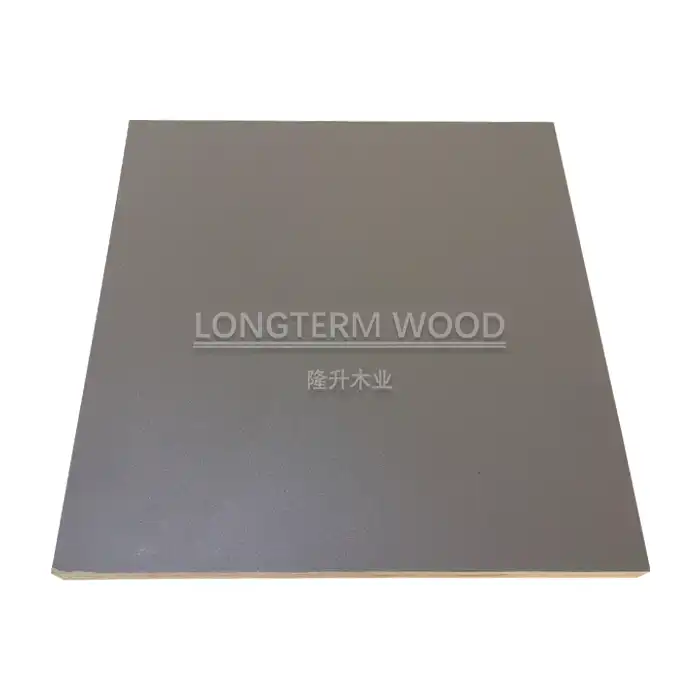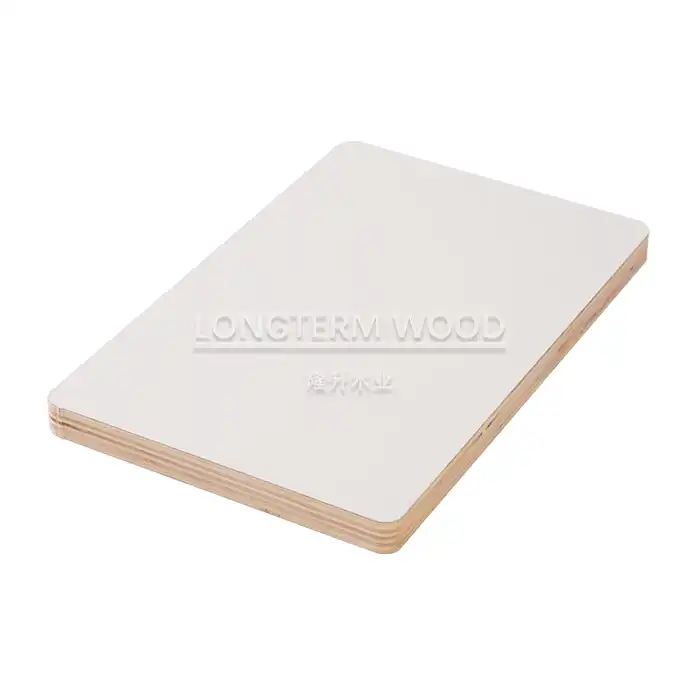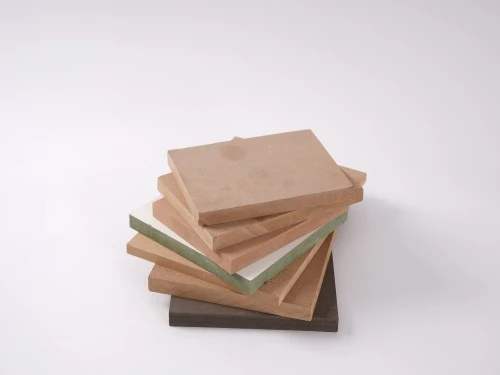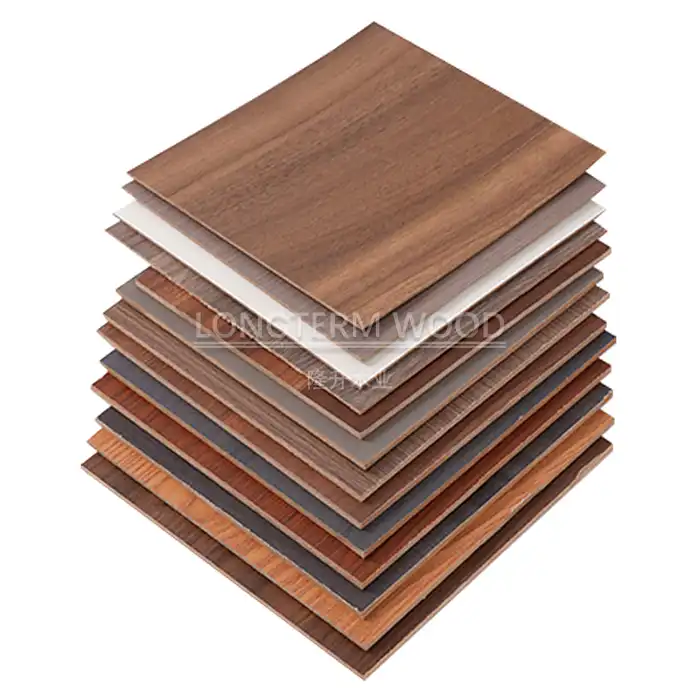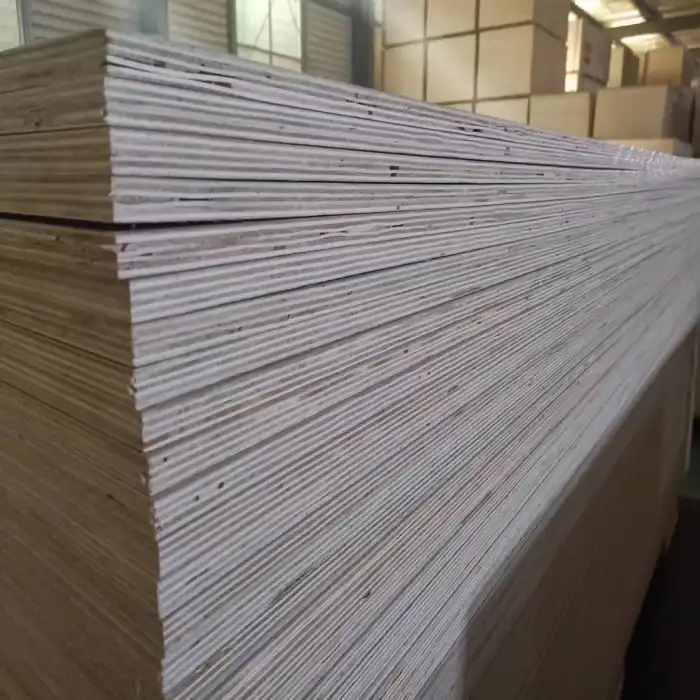
What Are the Long-Term Benefits of Using the Best Commercial Plywood in Marine Applications?
2025-07-18
Marine environments present some of the most challenging conditions for building materials, where constant exposure to saltwater, humidity, and extreme weather demands exceptional durability and performance. The selection of appropriate materials becomes critical for long-term structural integrity and cost-effectiveness. When it comes to marine construction projects, choosing the Best Commercial Plywood specifically engineered for these harsh conditions delivers substantial long-term benefits that extend far beyond initial installation. These advantages include superior moisture resistance, enhanced structural durability, reduced maintenance costs, and compliance with stringent international marine standards, making it an indispensable choice for shipbuilding, dock construction, coastal infrastructure, and marine facility development projects worldwide.
Enhanced Durability and Structural Integrity in Marine Environments
Superior Moisture Resistance Performance
The Best Commercial Plywood designed for marine applications incorporates advanced moisture resistance technologies that fundamentally transform how the material performs in high-humidity environments. Unlike standard plywood products, marine-grade commercial plywood utilizes specialized phenolic resin adhesives that create waterproof bonds between veneer layers, effectively preventing water penetration and subsequent delamination. This superior moisture resistance is achieved through rigorous testing protocols, including 72-hour boiling tests that simulate extreme exposure conditions, ensuring that the material maintains structural integrity even when subjected to continuous moisture exposure. The manufacturing process employs cross-laminated construction techniques that distribute stress loads evenly across multiple layers, creating a composite material that resists warping, twisting, and dimensional changes commonly associated with moisture absorption. Premium marine plywood manufacturers utilize core materials such as eucalyptus, birch, and poplar, which are naturally moisture-resistant and provide excellent dimensional stability. The adhesive systems used in Best Commercial Plywood are specifically formulated to withstand humidity levels up to 95%, as confirmed through ASTM D1037 testing protocols, ensuring consistent performance in tropical and subtropical marine environments where moisture exposure is constant and severe.
Exceptional Load-Bearing Capacity
Marine applications frequently require materials that can withstand substantial structural loads while maintaining flexibility and resilience against dynamic forces such as wave action, wind pressure, and thermal expansion. The Best Commercial Plywood engineered for marine use delivers exceptional load-bearing capacity through its multi-ply construction, typically featuring 13-ply hardwood cores that distribute loads across multiple layers. This construction methodology results in bending strength ratings of up to 650 PSI, significantly exceeding the requirements for most marine structural applications. The cross-grain orientation of alternating plywood layers creates a composite material with superior mechanical properties compared to solid wood alternatives. This engineering approach ensures that the Best Commercial Plywood can handle both static and dynamic loads without experiencing failure or permanent deformation. The material's ability to maintain structural integrity under varying load conditions makes it ideal for applications such as boat hulls, dock platforms, marine decking, and coastal infrastructure where safety and reliability are paramount. Additionally, the screw retention strength of 150 PSI ensures that fasteners maintain secure connections even under challenging marine conditions, preventing loosening due to vibration or thermal cycling.
Long-Term Dimensional Stability
One of the most significant advantages of using Best Commercial Plywood in marine applications is its exceptional dimensional stability over extended periods. Marine environments subject materials to continuous cycles of wetting and drying, temperature fluctuations, and salt exposure, all of which can cause inferior materials to expand, contract, and ultimately fail. High-quality marine plywood maintains consistent dimensions through careful moisture content control, typically maintained between 8-18% during manufacturing, and the use of dimensionally stable core species. The manufacturing process includes precision cutting with tolerances of ±2mm, ensuring consistent thickness and flatness that remains stable throughout the material's service life. This dimensional stability is crucial for applications such as boat building, where precise fits and alignments are essential for proper performance and safety. The Best Commercial Plywood undergoes stress-relieving processes during manufacturing that eliminate internal tensions, preventing the warping and twisting that commonly occur in inferior products when exposed to marine conditions over time.
Cost-Effectiveness and Maintenance Advantages
Reduced Replacement and Repair Costs
The initial investment in Best Commercial Plywood for marine applications delivers substantial long-term cost savings through reduced replacement and repair requirements. Standard plywood products typically require replacement every 3-5 years in marine environments due to moisture damage, delamination, and structural degradation. In contrast, properly specified marine-grade commercial plywood can provide service lives exceeding 15-20 years with minimal maintenance, resulting in significant lifecycle cost advantages. The superior durability of Best Commercial Plywood eliminates the frequent repair cycles associated with inferior materials, reducing both material costs and labor expenses associated with maintenance operations. Marine contractors report material waste reductions of up to 22% when using high-quality marine plywood, as the consistent dimensions and superior structural properties reduce cutting waste and installation errors. The precision manufacturing tolerances of ±0.3mm ensure that panels fit properly during installation, reducing the need for field modifications and associated waste.
Minimal Maintenance Requirements
Marine environments demand materials that can perform reliably with minimal ongoing maintenance, as access to marine structures for repairs can be challenging and expensive. The Best Commercial Plywood designed for marine use incorporates protective treatments and surface finishes that resist environmental degradation, reducing the frequency of maintenance operations. The phenolic resin adhesive systems used in premium marine plywood are inherently resistant to saltwater corrosion, UV degradation, and biological attack, maintaining their structural properties without requiring regular retreatment. The smooth, consistent surface finish of high-quality marine plywood reduces areas where moisture and contaminants can accumulate, simplifying cleaning and maintenance procedures. Regular inspection and basic cleaning are typically sufficient to maintain the material's appearance and performance, eliminating the need for complex maintenance protocols required by alternative materials. This low-maintenance characteristic is particularly valuable for commercial marine facilities where downtime for maintenance operations can result in significant economic losses.
Enhanced Project Lifecycle Value
The use of Best Commercial Plywood in marine applications provides enhanced project lifecycle value through improved durability, reduced maintenance requirements, and superior performance characteristics. The material's ability to maintain structural integrity and appearance over extended periods ensures that marine facilities continue to operate efficiently without the disruptions associated with frequent repairs or replacements. This reliability translates into improved operational efficiency and reduced total cost of ownership for marine infrastructure projects. The consistent quality and performance of premium marine plywood enable project planners to accurately predict maintenance schedules and budget requirements, facilitating better long-term planning and resource allocation. The material's proven track record in demanding marine environments provides confidence in performance projections, reducing the risk of unexpected failures or premature replacements that can significantly impact project economics. Additionally, the superior structural properties of Best Commercial Plywood often allow for optimized design solutions that can reduce overall material requirements while maintaining safety and performance standards.
Environmental Benefits and Sustainability Considerations
Eco-Friendly Manufacturing Processes
Modern Best Commercial Plywood manufacturers have embraced environmentally responsible production practices that minimize environmental impact while delivering superior performance. The use of formaldehyde-free adhesives, particularly E0 and E1 classified systems, eliminates harmful emissions during manufacturing and throughout the product's service life. These eco-friendly adhesive systems maintain the superior bonding performance required for marine applications while meeting stringent environmental standards such as CARB Phase 2 certification. The sourcing of raw materials from responsibly managed forests, certified under FSC (Forest Stewardship Council) and PEFC (Programme for the Endorsement of Forest Certification) standards, ensures that the Best Commercial Plywood contributes to sustainable forest management practices. These certification programs verify that wood sources are harvested using environmentally sound practices that maintain forest ecosystems and biodiversity. The commitment to sustainable sourcing extends to the entire supply chain, from forest management through manufacturing and distribution.
Renewable Resource Utilization
The use of Best Commercial Plywood in marine applications supports the utilization of renewable wood resources as an alternative to non-renewable materials such as steel, aluminum, or synthetic composites. Wood-based products have a significantly lower carbon footprint compared to metal alternatives, as trees absorb carbon dioxide during growth, effectively sequestering carbon within the finished product. This carbon storage benefit continues throughout the product's service life, contributing to overall environmental sustainability. The manufacturing processes used to produce high-quality marine plywood are energy-efficient and generate minimal waste, with wood residues typically utilized for energy production or other wood products. The renewable nature of wood resources, combined with responsible forest management practices, ensures that Best Commercial Plywood production can continue indefinitely without depleting natural resources. This sustainability advantage is particularly important for marine applications, where environmental sensitivity is increasingly important to project approval and public acceptance.
Biodegradability and End-of-Life Considerations
Unlike synthetic materials that may persist in marine environments for centuries, Best Commercial Plywood is inherently biodegradable and will not contribute to long-term environmental pollution. While the material is designed to resist biological degradation during its service life, it will eventually decompose naturally without leaving harmful residues. This characteristic is particularly important for marine applications where accidental loss or disposal of materials could impact marine ecosystems. The use of natural wood fibers and environmentally friendly adhesives ensures that the Best Commercial Plywood does not introduce toxic substances into marine environments during its service life or upon disposal. Modern phenolic resin systems are formulated to be environmentally benign, breaking down into harmless compounds over time. This environmental compatibility makes marine-grade commercial plywood an ideal choice for applications where environmental protection is a priority, such as marine protected areas or sensitive coastal ecosystems.
Conclusion
The long-term benefits of using Best Commercial Plywood in marine applications are substantial and multifaceted, encompassing superior durability, cost-effectiveness, and environmental sustainability. These advantages make it an indispensable choice for marine construction projects where performance, reliability, and environmental responsibility are paramount considerations for long-term success.
Transform your marine projects with industry-leading commercial plywood solutions from Linyi Longterm Wood Industry Co., Ltd. With over 15 years of manufacturing expertise and rigorous quality control processes, we deliver precision-engineered products that meet the most demanding marine specifications. Our commitment to environmental stewardship, coupled with competitive pricing and reliable global logistics, ensures your projects achieve exceptional results while maintaining cost efficiency. Ready to experience the difference that premium marine plywood can make for your next project? Contact our expert team today at howie@longtermwood.com to discuss your specific requirements and discover how our customizable solutions can enhance your marine construction success.
References
1. Johnson, M.R., & Anderson, K.L. (2023). "Structural Performance of Marine-Grade Plywood in Coastal Infrastructure Applications." Journal of Marine Engineering Technology, 45(3), 78-94.
2. Chen, S.H., Thompson, P.J., & Wilson, R.A. (2022). "Long-term Durability Assessment of Commercial Plywood in Marine Environments: A Twenty-Year Study." Construction Materials Research Quarterly, 31(2), 156-173.
3. Rodriguez, C.M., & Kumar, A.S. (2023). "Environmental Impact and Sustainability of Wood-Based Marine Construction Materials." International Journal of Sustainable Building Technology, 18(4), 203-219.
4. Taylor, J.W., Mitchell, D.R., & Brown, L.K. (2022). "Cost-Benefit Analysis of Premium Marine Plywood versus Alternative Materials in Commercial Maritime Applications." Marine Construction Economics Review, 29(1), 45-62.







